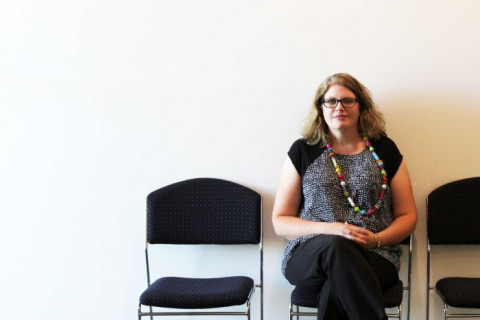
A Naracoorte child psychologist says children on the cusp of autism spectrum disorder (ASD) may be missing out on vital early treatment because parents or educators may not realise a child needs specialist intervention.
"The earlier the detection, the better the outcome," said Lana-Joy Durik, one of only two psychologists who specialise in early childhood intervention operating in South Australia's south-east.
Although Ms Durik has detected signs of ASD in children as young as two, on average, most children are coming into see her at school age and in some cases, not until their mid-teenage years.
This month, the Australian Medical Association (AMA) reported that many children were missing out on early treatment for ASD because diagnosis was not occurring early enough, a view Ms Durik shares.
"Sometimes the word 'autism' conjures up a very stereotypical view. It's called a spectrum for a reason. Sometimes the differences are so subtle," she said.
"When you have children with atypical signs or behaviour, parents may not be aware or they think 'they'll grow out of this'.
"Sometimes, educators are unsure or not confident how to discuss the subject with parents.
"The challenge comes when you have young children on the cusp. If you could give them the support and the funding they need early on, their outcomes down the track would be fabulous."
Rural families at disadvantage
Ms Durik said after diagnosis, many parents grappled with questions like: "What's going to happen to my child? Will they be okay at school? Will they find a life partner? Can they get a job?"
Supporting children and families who are feeling their way through a diagnosis of ASD and streamlining access to support networks is a particular mission of Ms Durik's, who returned to her hometown of Naracoorte four years ago.
"They had mental health services here, but no psychologists," she said.
"We are at a disadvantage because we are rural; there are not enough practitioners here in the country."
The average wait time for an appointment with Ms Durik is around two to three months, which she describes as "unacceptable".
"It seems unfair that people should have to wait to get the support that is needed," she said.
In one case of Ms Durik's, a remarkable change in the behaviour of a young girl diagnosed with ASD was testament to early intervention strategies.
"When I first saw her, she was unable to communicate, had a restricted diet, difficulty connecting with people and had strong sensory preferences," she said.
"She came to the early intervention centre when she was 2 years old. Now she's in primary school, communicating verbally and she has her way of being social. She's doing really well."
 PHOTO: Naracoorte psychologist Lana-Joy Durik has been working in the disability field for over 22 years. (ABC South East SA: Kate Hill )
PHOTO: Naracoorte psychologist Lana-Joy Durik has been working in the disability field for over 22 years. (ABC South East SA: Kate Hill )
Difficulty of diagnosis
"I've always known that my child is different" are generally the first words Ms Durik hears from a parent seeking answers about the behaviour of their child.
But she said diagnosing a child as being 'on the spectrum' was not an easy task.
Initially, Ms Durik will meet with parents to discuss the child's educational, medical and family backgrounds, talk about what the child's strengths are, their interests and the way they process sensory information such as touch or sounds.
Then the child will meet Ms Durik, or "LJ" as her younger clients know her, for the first time.
Sometimes, she will travel to kindergartens or schools as an observer, to see how they play and interact with other children.
"A red flag for me is when a child has great difficulty regulating their emotions," she said.
"When there are changes in routine and they are having very strong emotional reactions to that, that are above and beyond what's expected for the age."
Strong sensory preferences, such as a sensitivity to certain types of touch, is another marker.
Sometimes, Ms Durik will use CARS, a childhood autism rating scale, to complement her observations and measure her data against the official diagnostic criteria to make the final diagnosis.
Armed with Ms Durik's diagnosis, parents are then free to seek a second opinion from an accredited psychologist, paediatrician or speech pathologist, and she will put them in touch with appropriate services based on the family's goals and needs.
ASD unique for every child
For Ms Durik, who has been working in the disability field for over 22 years, nothing annoys her more than trying to put a one-size-fits-all label on a deeply individual condition.
"'Mild impairment' and 'severe impairment' — it just irks me. We want to put things into small, medium or large categories, but I don't think you can do that with ASD," she said.
"While there can be common behaviours or characteristics, every single person is unique and individual and impacted in different ways."
To families grappling with life after diagnosis, Ms Durik's message to parents is to be positive, celebrate your child's difference and have hope for the future.
"You might feel so depleted and think 'this is too hard' or 'are things going to get better?'" she said.
"Then it is important to connect with someone to help them find the right strategies and support for their child and their family so that they can make progress and feel that hope come back."